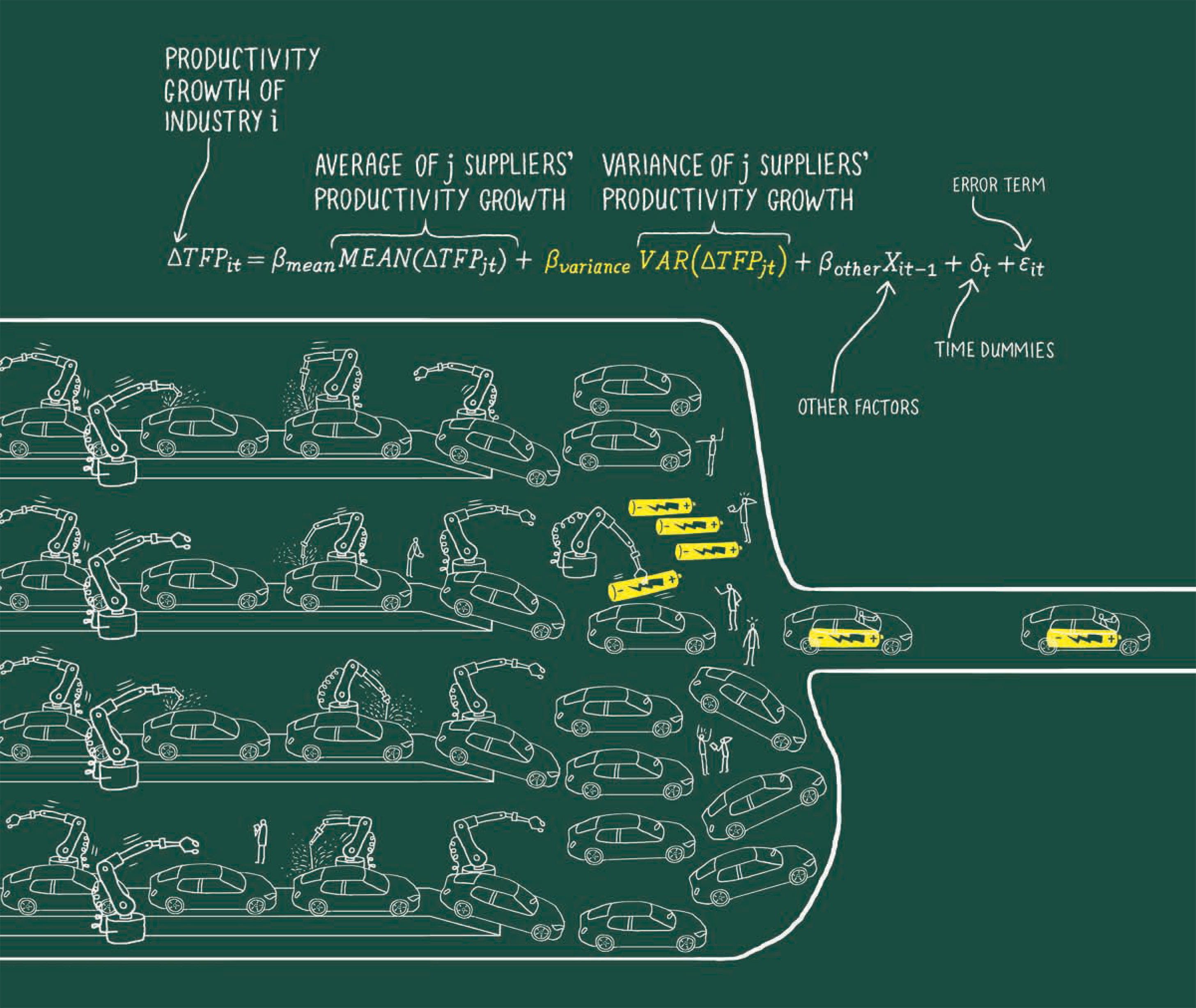
The Equation: Are Supply Chains Holding Back Productivity Growth?
- February 27, 2024
- CBR - Economics

In some cases, the ability of a company or sector to innovate depends on its suppliers. A good example can be found in the auto industry, where progress toward all-electric cars hinged on the creation of the lithium-ion battery, with its high energy density, high efficiency, and rechargeability, as a replacement to low-energy-density predecessors. Innovation bottlenecks could explain why US productivity growth has been disappointing since the 1970s, according to research by MIT’s Daron Acemoglu and David Autor and Chicago Booth’s Christina Patterson. In their model, an industry’s technological progress (measured by total factor productivity growth) depends partly on its suppliers’ simultaneous advancements. If some suppliers are innovating at a much faster pace than others, this uneven development across sectors could hinder an industry’s growth. To learn more, read “Lopsided Innovation Causes Productivity Slowdowns.”

Illustration by Peter Arkle

Harvard’s Dani Rodrik visits the podcast to discuss changing attitudes toward globalization.
Capitalisn’t: The New Economics of Industrial Policy
Combining two transit policies generates far better outcomes than either policy on its own.
Charge Drivers to Improve Public Transit
A study of two multibillion-dollar retail chains homes in on managers.
A Good Boss Can Boost Team ProductivityYour Privacy
We want to demonstrate our commitment to your privacy. Please review Chicago Booth's privacy notice, which provides information explaining how and why we collect particular information when you visit our website.